The King betta, a beloved aquarium fish with an enigmatic origin, remains shrouded in mystery. Limited information exists about this unique betta variant. One theory suggests that the King betta we admire today may have emerged from a natural crossbreeding between Betta raja and Betta splendens. Conversely, some speculate that the King betta originated from a selective breeding program using wild B. raja stock.
In this guide, National Park Aquarium will provide insights into the origins, identification, color variations, and other aspects about King Betta.
King Betta Fish Overview
| Common Names | King Betta Fish |
| Scientific Name | Betta raja (possible) |
| Adult Size | Around 3 inches (7.6 cm) |
| Lifespan | Around 2-3 years |
| Family | Osphronemidae |
| Origin | Unknown origin, possibly a result of crossbreeding between Betta raja and Betta splendens or from wild individuals of B. raja. |
| Temperament | Peaceful, can be slightly aggressive towards other bettas |
| Compatibility | Generally compatible with other peaceful fish species |
| Tank Mates | Peaceful fish like tetras, rasboras, and some catfish species |
| Minimum Tank Size | 5 gallons |
| Diet | Carnivorous: prefers pellets, live or frozen foods such as brine shrimp and bloodworms |
| Prey | Insects, small crustaceans, and zooplankton in the wild |
| Habitat | Freshwater rivers, streams, and ponds in Southeast Asia |
| Color | Varied and vibrant colors, including red, blue, and green |
| Skin Type | Scales |
| Care Level | Moderate |
| Breeding | Bubble nest builder; requires a separate breeding tank |
| pH level | 6.0 – 7.5 |
| Water Hardness | Soft to moderately hard water |
| Temperature | Around 78-82°F (25-28°C) |
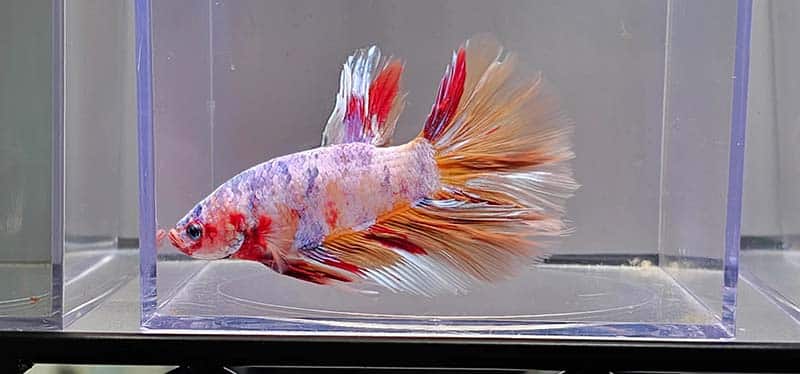
King Betta Fish Appearance & Color
With its vibrant and dynamic shades, it’s no wonder king betta fish is a favorite among aquarium enthusiasts.
While the king betta may have a regal name, its size is surprisingly modest. An adult male typically measures between 5 – 6 cm (2 to 2.5 inches) in length. Females, in comparison, are just a tad smaller. But don’t let their size fool you. These fish have a unique charm, with their slightly larger bodies and shorter fins setting them apart from other bettas.
The king betta fish color ranges from dazzling blues and fiery reds to soothing greens and warm oranges. This rich coloration especially stands out in males, who display brighter hues compared to the slightly muted shades of their female counterparts. It’s this captivating blend of colors that adds a touch of brilliance to any aquarium.
Adding to its allure is the king betta’s graceful movement. Their fins and tails, though shorter than other betta species, undulate softly as they navigate their watery abode, creating an almost hypnotic dance.
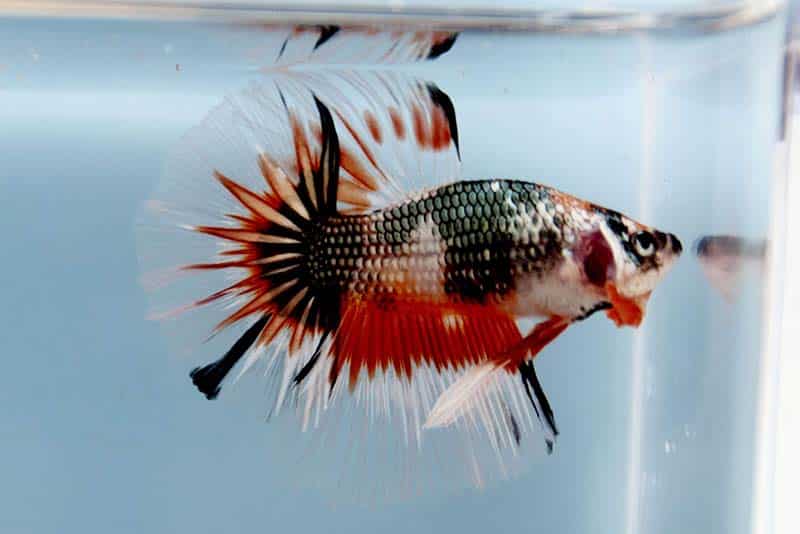
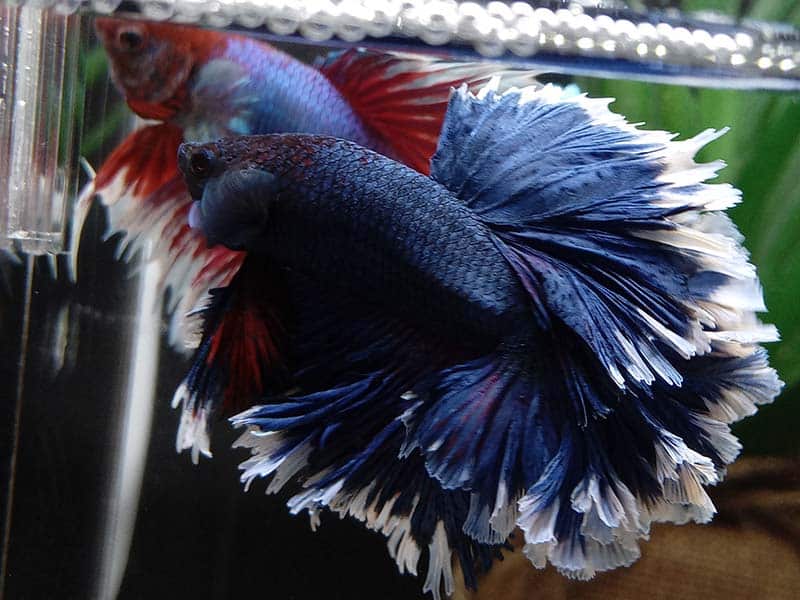
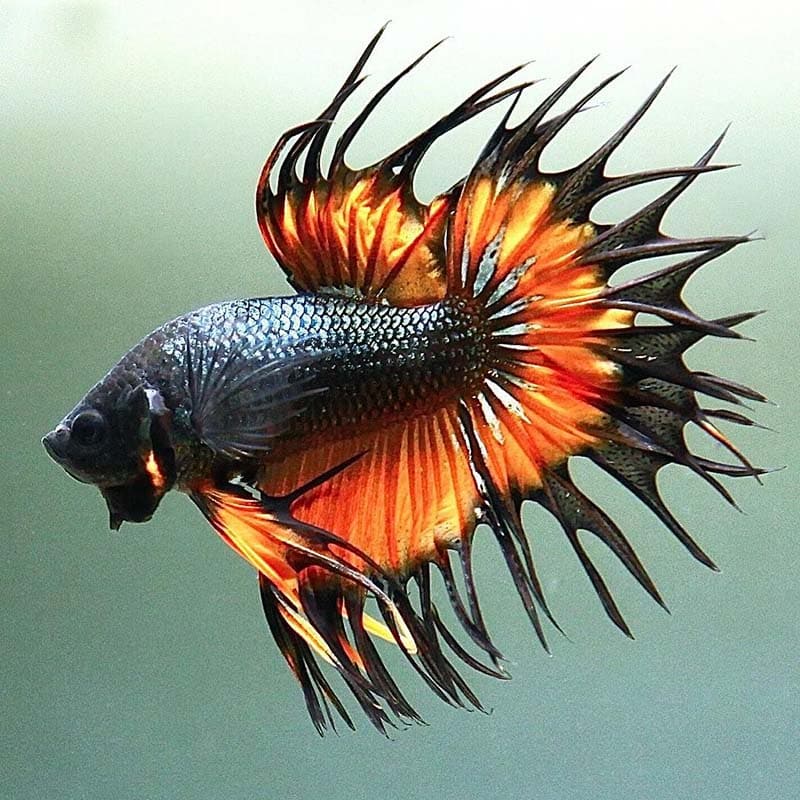
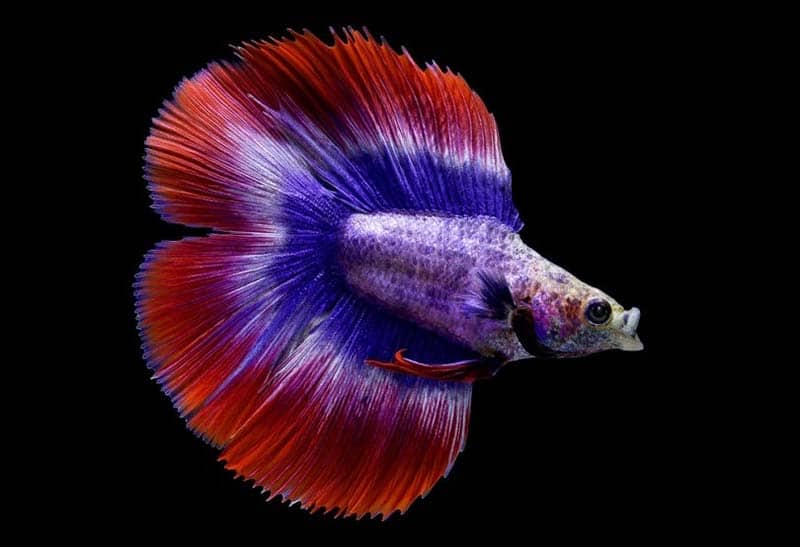
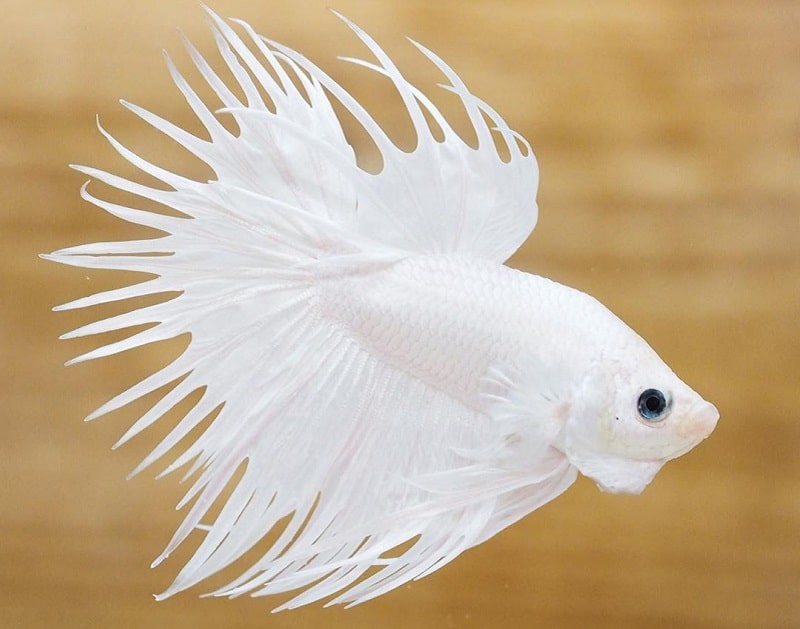
Female & Male King Betta
For breeding purposes, it’s possible to house male and female king bettas together, but only for short spans. This temporary coexistence facilitates the breeding process. However, long-term cohabitation can lead to disputes and unrest in the tank.
It’s important to monitor their behavior and ensure that both fish are comfortable and stress-free. If you notice signs of aggression or stress, it might be best to provide separate spaces for each.
Being cognizant of these dynamics not only ensures the well-being of your king bettas but also maintains a serene and harmonious environment in your aquarium.
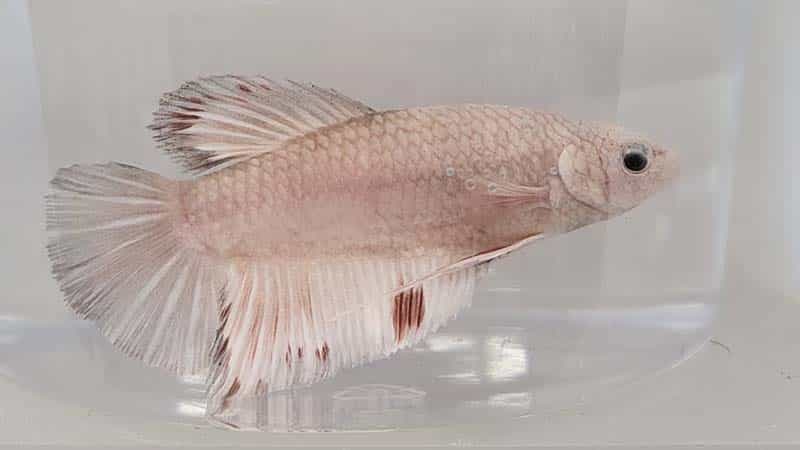
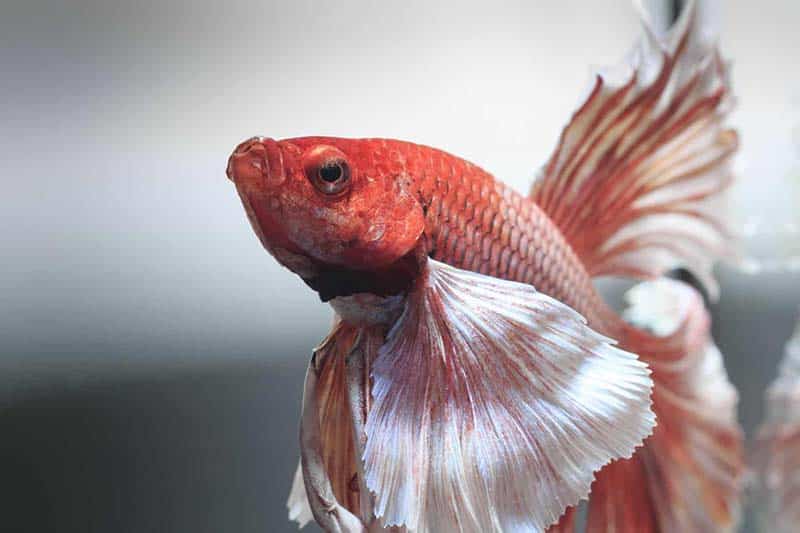
King Betta Vs. Regular Betta
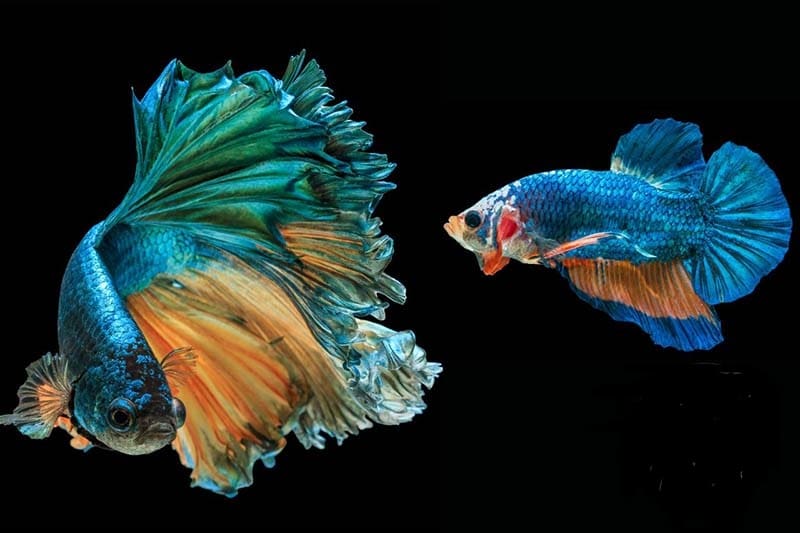
While at a glance king betta and regular betta may seem quite similar, there’s a subtle distinction to be aware of.
The primary difference lies in their size. Male king bettas typically grow slightly larger than their regular betta counterparts. This difference, though seemingly minor, can be noticeable to the keen observer.
However, it’s essential to note that apart from this size variation, the two are often considered nearly identical. Many aquarists believe that their behaviors, needs, and overall appearances are so close that they’re almost interchangeable.
Giant Betta Vs. King Betta
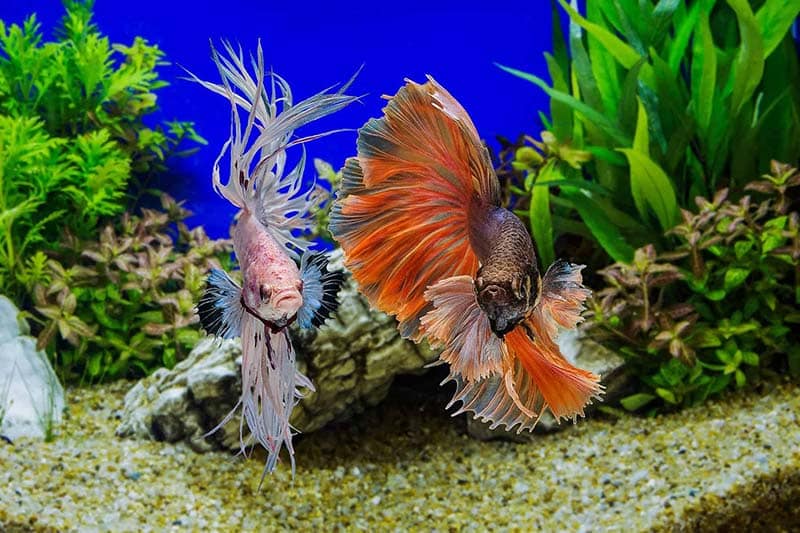
Giant bettas differ from King bettas in terms of variety. While Giant bettas are a selectively bred form of Plakat, growing anywhere from 3 to 7 inches long, King bettas typically reach only about 3 inches in length. This makes them just a tad larger than the average betta fish. Both Giant and King bettas are hybrids of the Plakat type.
King Betta Care
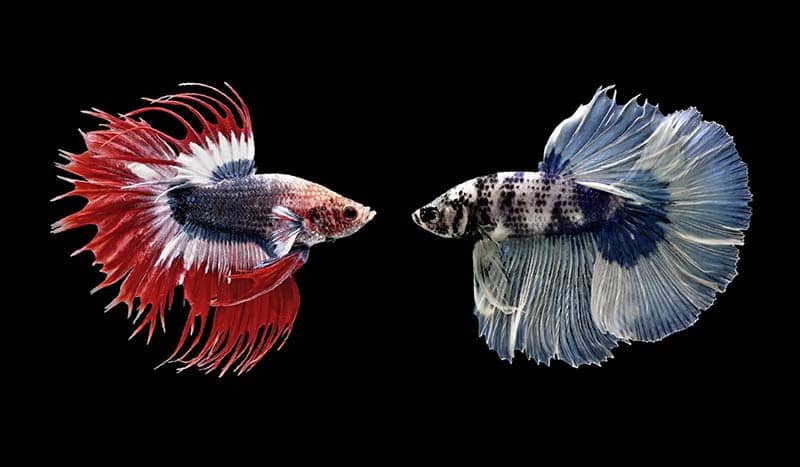
The king betta necessitates a reasonable level of maintenance and oversight. It’s vital to adhere to the tank conditions mentioned previously for the health of your king betta.
Allowing algae and other microorganisms to accumulate can pose a threat to your fish, so regular tank cleaning is essential.
It’s crucial to monitor and adjust the water parameters regularly. Regularly test for essential minerals like calcium and magnesium to ensure they’re at appropriate levels.
Breeding the King Betta
Breeding the king betta is relatively straightforward. The female deposits several eggs intermittently, which the male subsequently fertilizes. The female then gathers the fertilized eggs, cradling them beneath her fins.
The eggs typically hatch in roughly 2-3 days. It’s essential to keep the tank well-covered to ensure a warm and humid atmosphere for the emerging fry.
Conclusion
In the realm of freshwater fish, the King betta stands out as a true gem. Its enchanting beauty combined with its unique charm makes it a prized member of the betta family. The added advantage? Their straightforward care requirements ensure they remain vibrant and lively without needing excessive attention.




